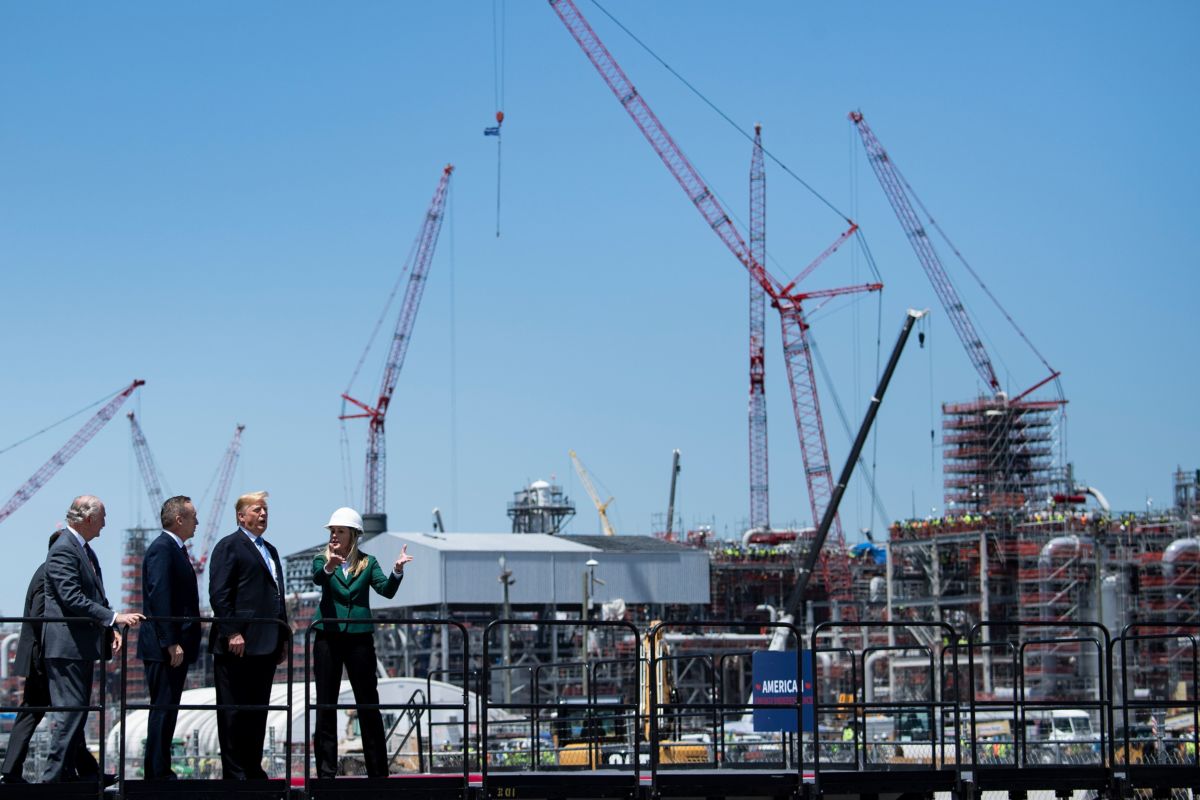The Environmental Protection Agency announced Thursday plans to roll back federal methane rules, reversing standards enacted under President Barack Obama to reduce emissions of the greenhouse gas that is a major contributor to climate change.
The move had split the oil and gas lobbies in Washington. Major companies such as ExxonMobil and Shell publicly encouraged the Trump administration to leave the standards in place. But the American Petroleum Institute, the industry’s biggest industry trade association, supported the revisions, arguing that the EPA had not complied with the proper statutes when it first implemented the regulation in 2016.
EPA Administrator Andrew Wheeler said in a statement that the rule change would remove “unnecessary and duplicative regulatory burdens from the oil and gas industry.” The agency also called into question whether it had the authority to regulate methane emissions without first classifying the gas as a pollutant under the Clean Air Act.
Environmental groups chided the rollback, raising concerns about increased pollution. Methane only makes up about 10 percent of U.S. emissions but traps about 28 times as much heat as carbon dioxide over the course of a century, according to the Intergovernmental Panel on Climate Change.
“This proposal is irresponsible, dangerous and out of step with calls from oil and gas industry leaders to preserve and strengthen federal methane rules,” said Matt Watson, vice president for energy at the Environmental Defense Fund, in a statement.
Most major oil companies now acknowledge the threat of climate change, and many companies’ shareholders have pushed them to reduce emissions.
Shell, which spent $3.7 million on lobbying through the end of the second quarter, broke with precedent earlier this year when it called on the Trump administration to tighten, rather than loosen, the methane regulations. The company’s president, Gretchen Watkins, said at the time that the regulation helped the industry “develop better, more affordable methane technology.”
Exxon and BP were among the other energy giants to come out publicly in support of the methane rule. The two companies spent a combined $7.8 million on lobbying during the first half of 2019.
But Exxon, BP and Shell are also members of API, which opposed the regulations and supported the EPA’s latest revision.
In a statement Thursday, Erik Milito, API’s vice president of upstream and industry operations, concurred with Wheeler’s assessment, saying the methane regulations were unnecessary because the industry was already focused on reducing emissions.
“We support EPA’s efforts to adhere to its statutory obligations under the Clean Air Act,” Milito said.
API spent $3.5 million on lobbying through June 30, working on a number of issues including methane regulations. The trade association’s president is Mike Sommers, former chief of staff to former House Speaker John Boehner (R-Ohio), and its top communications official is former Trump aide Megan Bloomgren. Neither Sommers nor Bloomgren is formally registered as a lobbyist.
A second industry group, the Independent Petroleum Association of America, likewise commended the EPA’s decision to roll back the standards. The association spent $767,648 on lobbying through the second quarter, on issues including methane emissions.
Wheeler, who took the helm at the EPA last year, previously worked as an energy lobbyist. As recently as 2017, his clients included the coal producer Murray Energy, for whom he lobbied against the regulation of greenhouse gas emissions.
The methane revision is not the first time the Trump administration has rolled back environmental regulations, and many previous initiatives have also been met with mixed industry support. In May, the EPA lifted a ban on the use of E15, an ethanol gasoline blend known for contributing to smog. That decision was lauded by farm groups but criticized by members of the oil industry, including API.
The administration has also proposed weakening vehicle fuel-efficiency standards. While automakers had grumbled at the Obama-era regulations, many in the industry felt that Trump’s proposed rollback went too far, and have sided with the state of California in an ongoing lawsuit over the rule.
OpenSecrets reporter Karl Evers-Hillstrom contributed to this report.
Join us in defending the truth before it’s too late
The future of independent journalism is uncertain, and the consequences of losing it are too grave to ignore. To ensure Truthout remains safe, strong, and free, we need to raise $24,000 by the end of today. Every dollar raised goes directly toward the costs of producing news you can trust.
Please give what you can — because by supporting us with a tax-deductible donation, you’re not just preserving a source of news, you’re helping to safeguard what’s left of our democracy.
